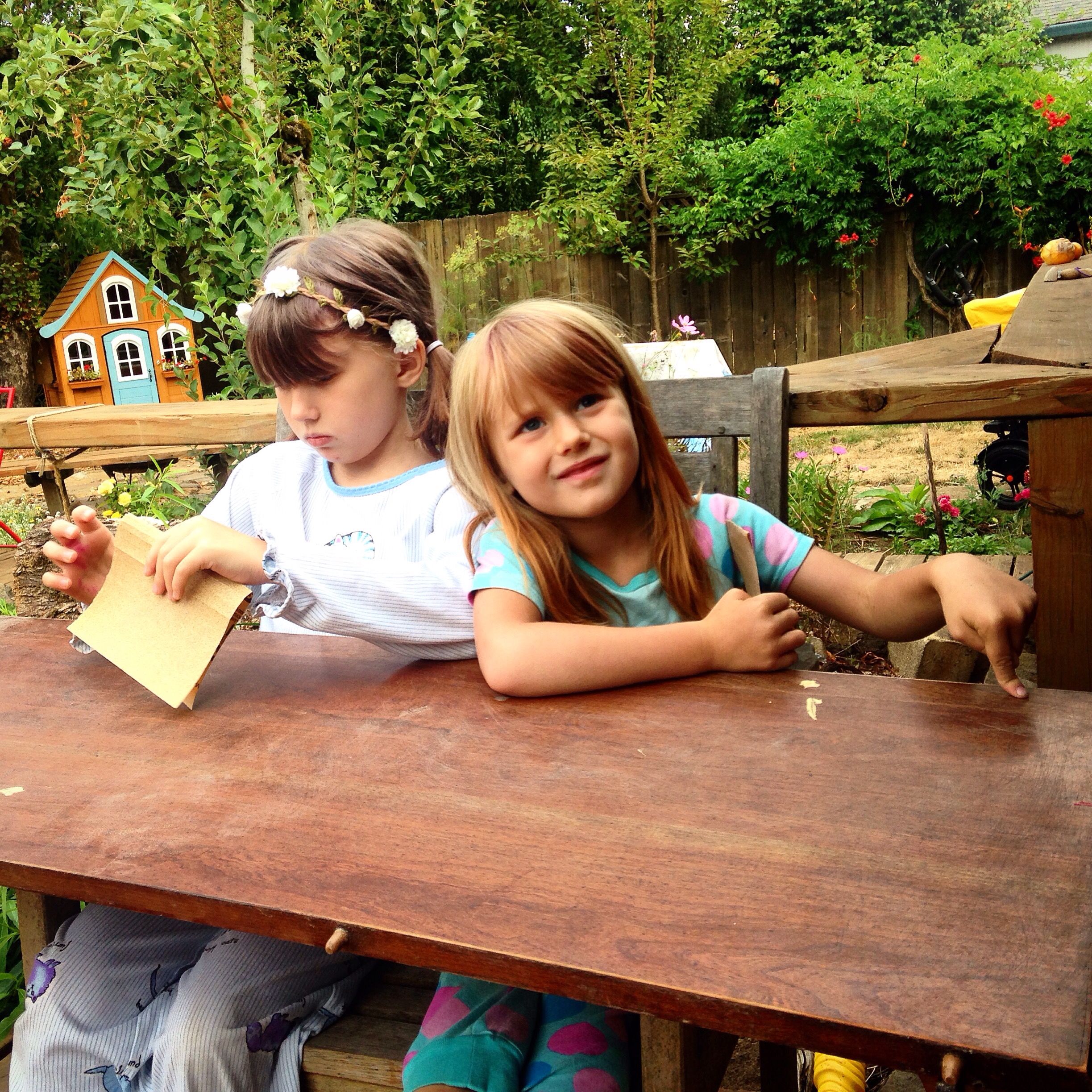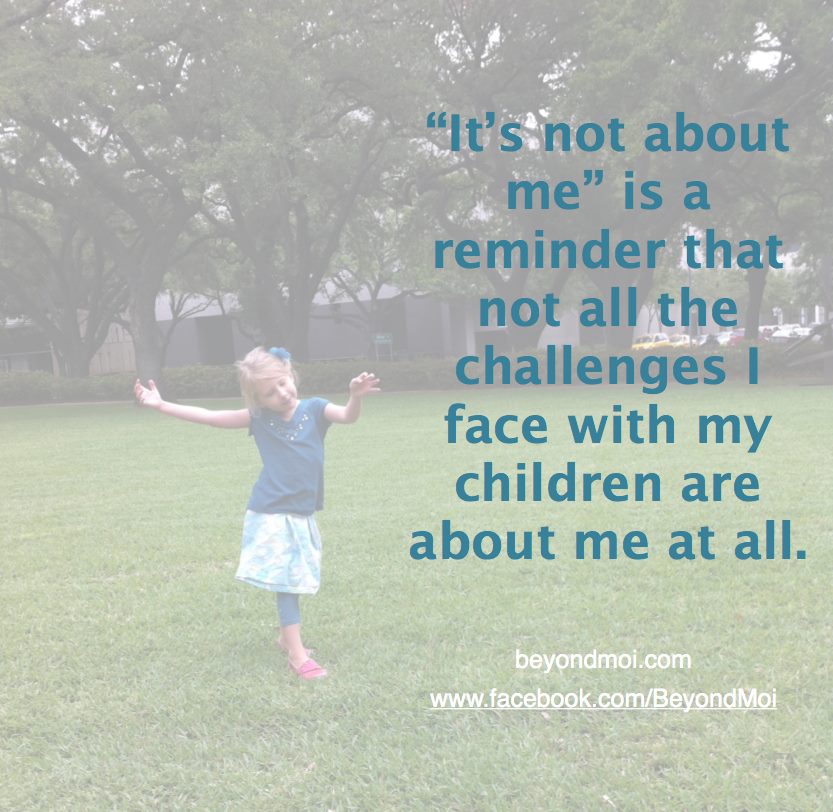“You can’t touch my body without permission! It’s my body!”
“You can’t tell me what to do!”
“You’re not in charge of me!”
Great. We have deliberately and diligently taught our children that they are in charge of their bodies, and responsible for their actions and reactions. Now they think that they are therefore in charge of every aspect of their lives. It was inevitable.
“Why do I HAVE to go to school?”
“I don’t like this food. You can’t force me to eat it.”
“I don’t want a quiet time. I won’t do it.”
“I don’t want to clean up. You can’t make me.”
Even our older kids rise up against the power that we have over them as parents. They’re just less obvious about it. “Putting something away” in their room for 15 minutes when we’re all picking up our community space (the parts of our house that we share) together for 20 minutes, for example, when in reality they would rather just read a book on their bed – a preference that they carry out, until they get discovered. Family rules regarding electronics only matter if they get caught breaking them, and then they get to act offended when they get called on it. They are hurt. Deeply wounded. And the injustice is just really hard to cope with.
How dare we, as parents, try to control our children?
Dear children, if you only knew. It would be so much easier for me as your parent if I could actually control you. Family life would be so much simpler if I could ask you to put your things away and you would promptly skip to it. Our relationships would be so much easier if you would stop gleefully pestering your siblings like I’ve asked you to time and again. If you were all robots that followed my every command, you would be completely safe, and order would reign in my house. On my terms. And I would choose for you to be happy about it. A perfect Stepford family we would be.
Hold up. That’s terrifying. I don’t want robots for children. I don’t want my children to be controlled by me or anyone else, and I don’t want them to grow into adults that believe they need to be controlled either.
I don’t want to control my children.
Does this mean I want out-of-control children?
No.
I want them to be in control of themselves. I want them to own their choices, their tastes, their passions, their talents and abilities, their emotions, their thoughts, their words, their actions, their reactions, their relationships, their future.
But two things complicate this ideal:
- They are children and as such have immature thoughts, emotions, means of expressing themselves, relationships, and they make immature choices. Which is why,
- I am legally responsible for them. Whether they like it or not, it is my responsibility to ensure the safety and health of my children.
I know better than they do. I have more experience, more education, more information, more maturity, and I have made more mistakes (and learned from them). Until they get to a certain age, the only thing I don’t know more about than my children is what they are experiencing. Their thoughts, the way their body feels to them, and their emotions, their perspective of the world, their ideas, and even their wisdom, are theirs, and I don’t know better than them in any of those areas, because they are theirs; those belong to them.
Which is where the tension really lies. I know so much more about how to live, how the world works, than they do. But they know better who they are inside.
When I try to guide them, even for the best possible intentions, like sparing them from making the same mistakes I did, without allowing them to speak into each situation from their own perspective, I am not guiding them at all. I am trying to control them, which really means that I want robots instead of children.
Granted, it is easier in the short run to establish control over our children. We speak, they obey. The end. But that’s just it. That may well be all they know when they leave the familial nest. Someone in authority speaks, they obey. This doesn’t prepare them well for the transition into adulthood. I wonder if this is what leads so many young adults to rebel against everything they were taught, because for the first time in their life, they can. Or they don’t and just seek someone else to fill that role that speaks to them, that they may obey – the end. Not to mention what seeking to control someone, and the means to achieve it, do to your relationship with them.
I want more than that for my children. I want the harder way. The way that teaches them that their perspective, their feelings, their ideas, and all the rest, matter. I want to guide them, and let them speak into that guiding, challenge it, so that we can have a conversation about it. They may not always understand my reasoning, but they will understand that I have reasons. And further, they will understand that I genuinely care about them, fully, and that I respect them. Deeply enough that I refuse to use phrases like “because I said so” because they reflect a desire to control without questioning – even when it means that I have to stop a moment to reflect on why I’m insisting on something and whether those reasons are good enough for me to keep insisting on it.
This approach takes a lot of time and effort, I won’t deny that.
But this parenting decision has deeply changed me, and I not only feel more confident about my parenting, but about my own beliefs as well. I also feel great about my relationship with my children, and I’m extremely proud of the relational maturity that this has led to in their lives.
Except when I don’t. There are times when I feel crushed by them, when they hurt me and try to take advantage of my gentle way with them, and I feel like I have no idea what I’m doing, and I start wishing that they would just comply. In those moments, I consider the alternative, I reject it again, and I usually end up realizing that there is no way I would let anyone else treat me the way that they are. In my attempt to be more gentle in my parenting, I sometimes allow them to take advantage of me, and I don’t have to allow that. I am the parent. I have the power in this relationship. More importantly, I am a person, with the same value as them, deserving of the same respect and love.
And from this position of power, I go back to my children, but instead of flexing my intimidating authority, I gently inform them that they really hurt me, and I won’t allow them to treat me that way any more, that I will not be in relationship with someone who tries to control me or bully me, just like I wouldn’t let anyone try to control them or bully them. And I will leave the future of our relationship in their hands. So far, this path of vulnerability has led to a much stronger bond between us. I could have crushed them. Instead I admitted I was hurt.
I don’t want to control my children. I want to journey alongside them, offering guidance where I can. I want them to challenge me (even when I don’t want them to). Because I believe that the safest people they can challenge while they figure out how to own their lives and their future should be their mother and father. And I believe that if handled correctly, they will learn that their parents can in fact be their biggest allies.
~ Jeremy








Wow that is a good read, sums up my thoughts on how I want to raise my kids, how I feel our family should treat and respect each other. Also describes perfectly the struggles I have with myself and others when thing don’t appear to be working or controlled very well. I recently heard from some well meaning person that I needed to lay the law down and get those kids in order! This person says nothing when our house is full of happy kids and adults just living together in harmony as families should which is 90% of the time. Thank you for writing. K